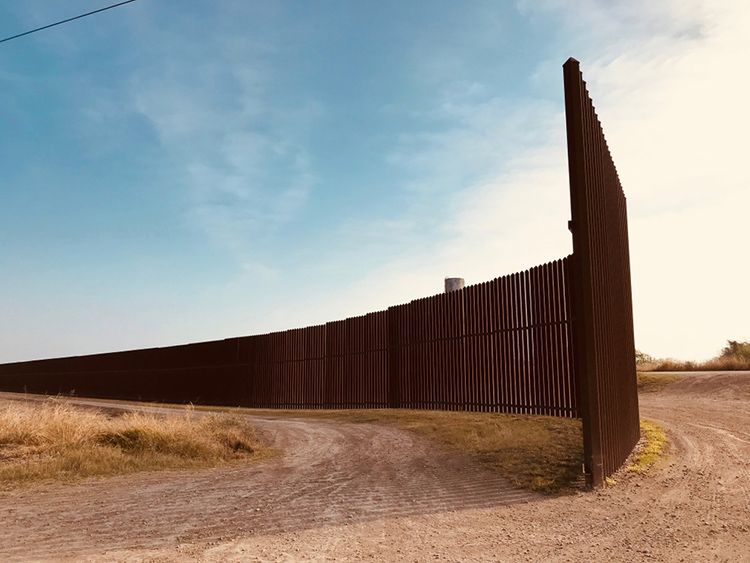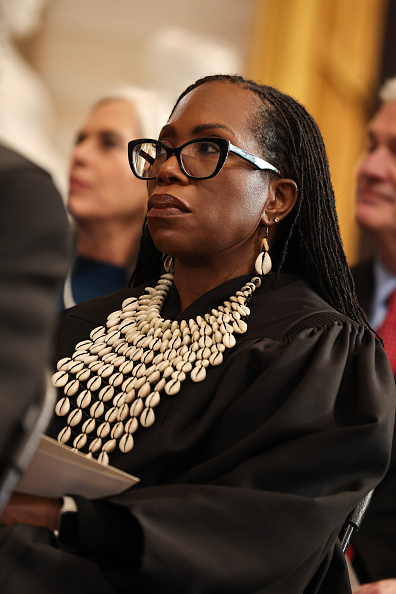Divided Supreme Court refuses to block border wall construction

U.S.-Mexico border fence in Texas. Image from Shutterstock.com.
In a 5-4 vote Friday, the U.S. Supreme Court declined to block President Donald Trump from spending military funds on the border wall as litigation continues.
The court refused to act in a one-sentence order, report the New York Times, the Washington Post and SCOTUSblog.
Justice Stephen G. Breyer dissented, joined by Justices Ruth Bader Ginsburg, Sonia Sotomayor and Elena Kagan.
The Sierra Club and the Southern Border Communities Coalition had asked the Supreme Court to lift its emergency stay, granted in July 2019, that allowed Trump to use $2.5 billion in military funds for the border wall.
“When this court granted its initial stay,” the groups argued, “it presumably assumed that it was merely granting interim relief, not deciding the merits in the guise of stay. That is no longer the case.”
The groups argued that the government has “spent the past year rushing construction of a border wall that Congress denied and that multiple courts have all found unlawful.” Leaving the stay in place will allow the government to complete the project, the groups said.
The 9th U.S. Circuit Court of Appeals at San Francisco had ruled in June that Trump violated the Constitution’s appropriations clause when he transferred Department of Defense funds to construct parts of the wall in California, Arizona and New Mexico. The court said the statute cited by the government did not authorize the spending.
Breyer had argued last year that the case raises “important questions about the ability of private parties to enforce Congress’ appropriations power.” He had suggested a compromise that allowed the government to finalize contracts but did not allow it to spend funds or begin construction.
In his dissent Friday, Breyer said the government has apparently finalized its contracts, avoiding irreparable harm it claimed in last year’s stay application. Letting construction continue may operate, in effect, as a decision on the merits, he said.
The government says it plans to file a petition for certiorari in the case by Aug. 7.
The American Civil Liberties Union represented the Sierra Club and the Southern Border Communities Coalition in the case, Trump v. Sierra Club.
Write a letter to the editor, share a story tip or update, or report an error.


